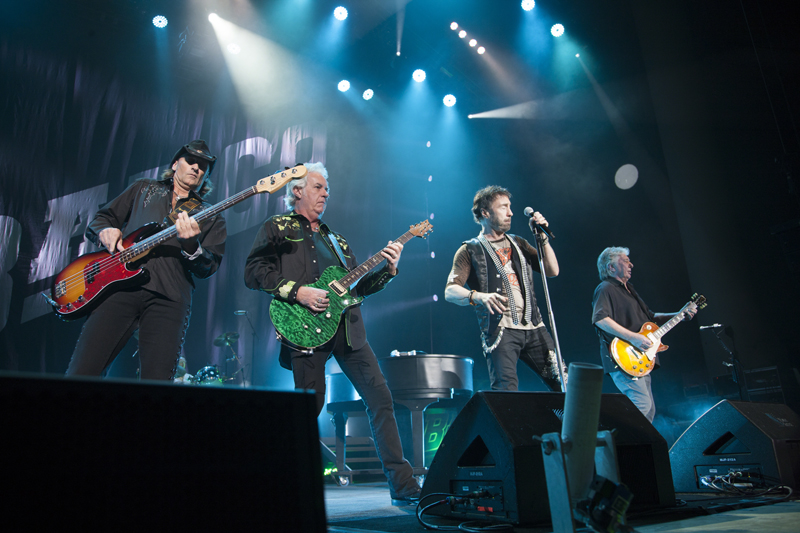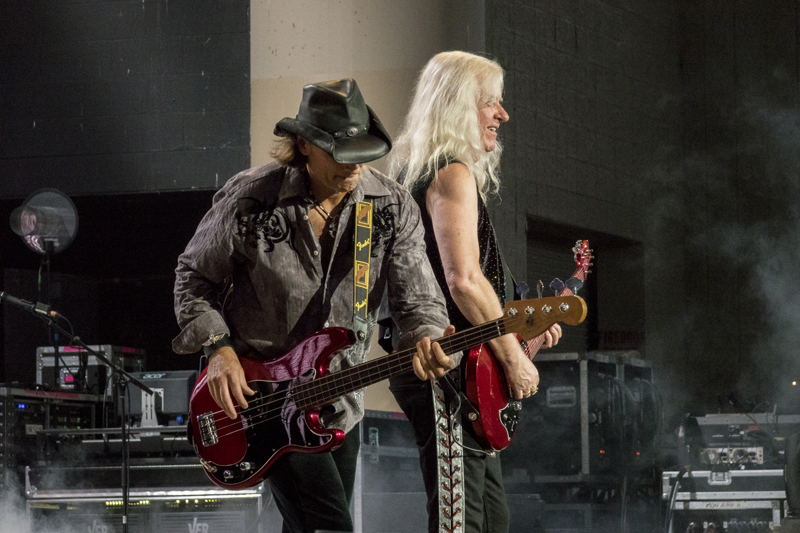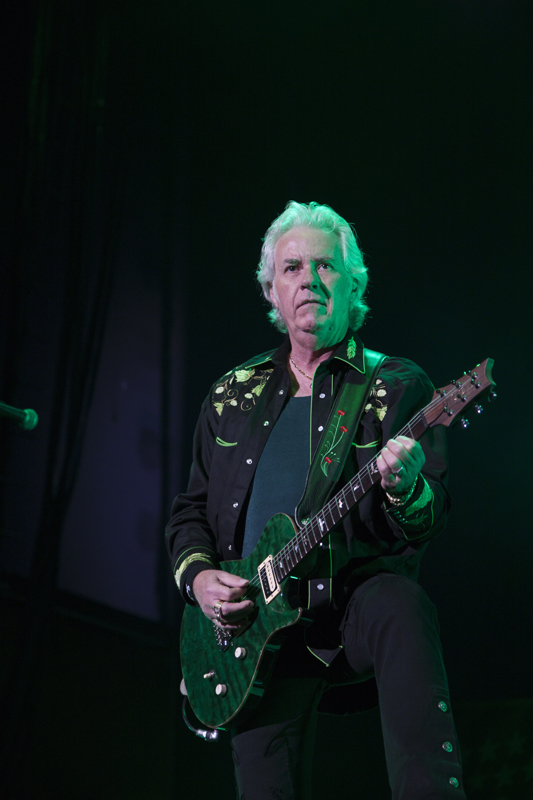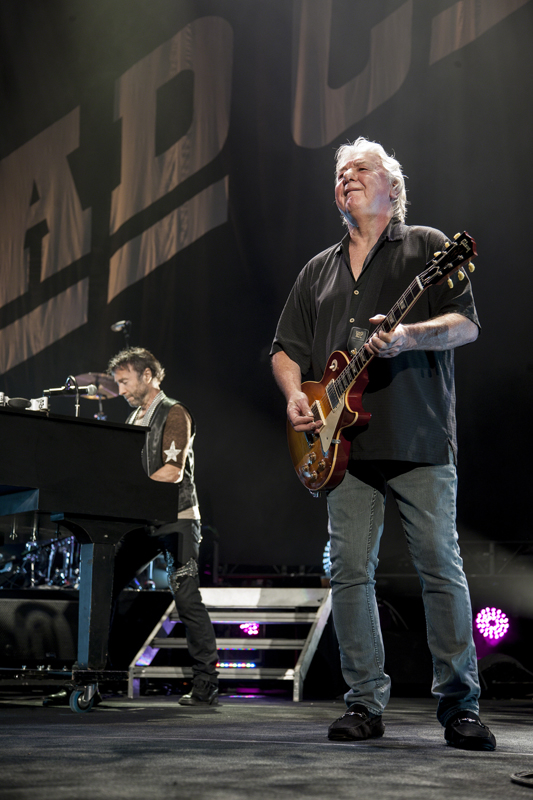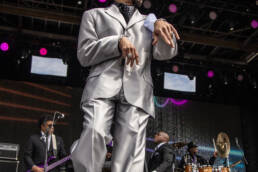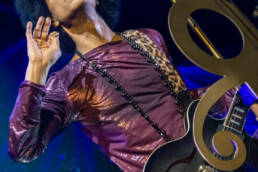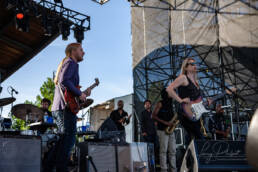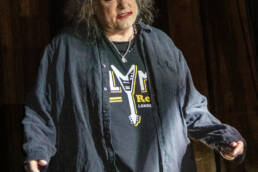Paul Rodgers of Bad Company, Free, The Firm, and Queen
Paul Rodgers: The Soulful Roar That Rocked the Ages
Imagine a young lad in England’s industrial north, belting blues in a backroom pub, his voice cutting through the smoke like a freight train through fog. For Paul Rodgers, music wasn’t just a gig—it was a calling, a primal urge to channel life’s highs and lows into a sound that could shake walls. His path from a Middlesbrough dreamer to a rock titan is a tale of grit, groove, and a voice that’s carried bands to glory for over five decades.
The Spark That Started It All
Paul’s primary motivator was the blues—a raw, soul-deep sound that hit him like a revelation. Born on December 17, 1949, in Middlesbrough, England, he grew up in a working-class family where postwar austerity loomed large. His dad, a dockworker, and mom, a housewife, couldn’t afford much, but a record player spun Muddy Waters and Howlin’ Wolf into Paul’s world. At 13, he picked up a guitar, but it was his voice—gravelly, soaring, pure—that set him apart. He’s said singing was his escape, a way to rise above the gray streets and shout his story. That fire drove him from local stages to global fame, fueled by a need to honor the roots he adored.
The Full Story: From Blues Boy to Bad Company
Paul’s journey kicked off in the mid-’60s with gigs in Middlesbrough’s pubs, fronting bands like The Roadrunners. By 1968, he’d moved to London, forming Free with guitarist Paul Kossoff, bassist Andy Fraser, and drummer Simon Kirke. Their 1970 hit “All Right Now” made them stars—Paul’s howl over Kossoff’s riffs a rock radio staple—but egos and Kossoff’s drug issues imploded the band by 1973. Undeterred, Paul linked with Kirke, guitarist Mick Ralphs, and bassist Boz Burrell to launch Bad Company in 1974. Their debut, with “Can’t Get Enough,” cemented Paul as a frontman nonpareil, blending blues swagger with hard-rock punch.
Bad Company ruled the ’70s—Straight Shooter, Run with the Pack—but by 1982, burnout and creative drift split them too. Paul went solo with Cut Loose (1983), then formed The Firm in 1984 with Led Zeppelin’s Jimmy Page, drummer Chris Slade, and bassist Tony Franklin—think “Radioactive,” a gritty gem. The Firm fizzled by 1986, and after a stint with The Law (1991) alongside drummer Kenney Jones, Paul toured solo again. In 2004, he joined Queen + Paul Rodgers, filling Freddie Mercury’s shoes—a bold move that thrilled some, irked others—until 2009. Bad Company reunited sporadically, and today, at 75, Paul’s still rocking, his 2023 solo album Midnight Rose a nod to his unbroken spirit.
Career Highlights: Bands, Bandmates, and Beyond
Paul’s career is a band-hopping saga, but Bad Company—Paul (vocals), Mick Ralphs (guitar), Simon Kirke (drums), Boz Burrell (bass)—is his peak, a ’70s juggernaut. Free (with Paul Kossoff, Andy Fraser, Simon Kirke) birthed his legend, while The Firm (Jimmy Page, Chris Slade, Tony Franklin) and Queen + Paul Rodgers (Brian May, Roger Taylor) showcased his range. The Law (Kenney Jones) was a blip.
Relationships? His bond with Kossoff was deep—Paul’s grief over his 1976 overdose death fueled later work. His 2005-2009 Queen gig sparked headlines—Mercury fans split on his fit, though May praised him. Married to Machaela “Mickie” Rodgers since 1971 (divorced 1996), then Cynthia Kereluk since 2007, he’s kept romance quiet. Friendships with Robert Plant and David Gilmour have simmered, yielding occasional stage jams.
TV and film? Sparse—Paul’s a stage beast, not a screen star. He popped up on Later… with Jools Holland and voiced a 2008 BBC doc on blues. Bad Company’s tunes pepper Supernatural and The Sopranos. Awards? He’s Grammy-less but nabbed an Ivor Novello Award in 1997 for “Outstanding Contribution to British Music” and a 2011 Classic Rock Roll of Honour as “Songwriter of the Year.” No Hall of Fame yet—Free and Bad Company are overdue.
His biggest songs:
- “All Right Now” – Co-written by Paul and Andy Fraser for Free in 1970, its riff and roar are eternal.
- “Can’t Get Enough” – Paul penned this 1974 Bad Company debut strut with Mick Ralphs, pure rock lust.
- “Bad Company” – Paul and Simon Kirke wrote this 1974 brooding classic, a band-defining hymn.
- “Feel Like Makin’ Love” – Co-written by Paul and Ralphs in 1975, its sultry groove topped charts.
Controversy in the Spotlight
Paul’s controversies are rock-typical but sharp. Free’s 1973 collapse—blamed on Kossoff’s addiction and Fraser’s exit—left Paul painted as the “quitter,” though he’s said it broke his heart. Bad Company’s 1982 split drew grumbles of ego clashes, with Ralphs later hinting Paul’s control irked the band. His Queen stint was polarizing—purists cried sacrilege, but Paul stood firm, calling it a tribute, not a replacement. A 1990s tax dispute in the UK flared briefly, settled quietly. He’s weathered it all with a shrug, his voice the last word.
The Roar That Echoes
Paul Rodgers turned a Middlesbrough kid’s blues into a career that’s rattled rafters worldwide. From Free’s raw edge to Bad Company’s swagger to Queen’s bold stage, he’s sung life into rock’s bones. At 75, his growl still stirs souls, a testament to a man who found his truth in the groove and never let it go.
Bad Company are an English rock supergroup formed in 1973 by singer Paul Rodgers (formerly of Free), guitarist Mick Ralphs (formerly of Mott the Hoople), drummer Simon Kirke (formerly of Free) and bassist Boz Burrell (formerly of King Crimson among various others).[2] Peter Grant, who managed Led Zeppelin, also managed the band until 1982. Bad Company experienced widespread commercial success and popularity during the 1970s. Their first three studio albums, Bad Company (1974), Straight Shooter (1975), and Run with the Pack (1976), reached the top five in the album charts in both the UK and the US.[3][4]
Many of their songs, such as “Bad Company“, “Can’t Get Enough” (1974), “Feel Like Makin’ Love“, “Shooting Star“, “Good Lovin’ Gone Bad” (1975), “Burnin’ Sky” (1977) and the disco influenced track “Rock ‘n’ Roll Fantasy” (1979), remain staples of classic rock radio. Bad Company has sold over 20 million records in the U.S. and over 40 million worldwide.[5]
Contrary to speculation that singer Paul Rodgers named the band after the Jeff Bridges film Bad Company, Rodgers stated in an interview with Spinner.com that the idea came from a book of Victorian morals that showed a picture of an innocent child looking up at an unsavoury character leaning against a lamp post. The caption read “beware of bad company”.[6]
